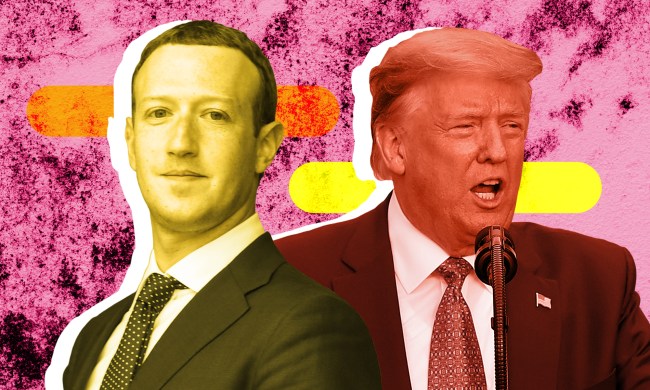Starting today, a message will be displayed atop the News Feed reminding users who are aged 18 and over to register to vote. After testing a similar voter registration drive on California-based users during the primaries, Facebook is expanding the feature to target people nationwide.
When you click on the colorful “Register” banner on your News Feed over the next four days you will be redirected to the government’s vote.USA.gov portal, where you will be guided through the registration process. As is the norm on Facebook, once you’ve registered you’ll be able to share a status with your network. The platform will be hoping that communal interaction between users will help spread the word and drive up voter registration.
“We thought we had a unique ability and responsibility to show people this reminder that they should be checking their registration so they can participate in the election,” Katie Harbath, Facebook’s director of government outreach, told USA Today.
Facebook has been selectively nudging users to vote since 2008, and the company claims its efforts have resulted in 1.5 million people participating in the electoral process.
It’s not the only social platform to tap into its active user base this election season. Earlier this week, Snapchat kicked off a public service campaign on its app in partnership with non-profit Democracy Works’ TurboVote. The tool allowed users to check their eligibility to vote, and to register, directly within Snapchat.
A number of celebrities were also tapped to create campaign promos, including Jared Leto, Dwayne “The Rock” Johnson, and Jimmy Fallon. YouTube is also currently running a #voteIRL campaign on its platform, which is aimed at younger viewers, and utilizes short clips by the site’s influential creators to illustrate how easy it is to register to vote.


